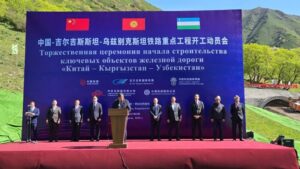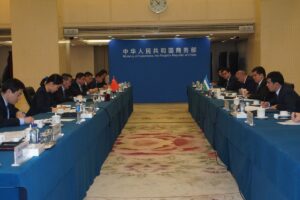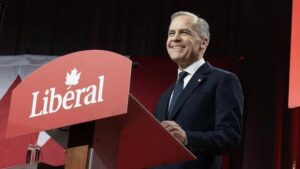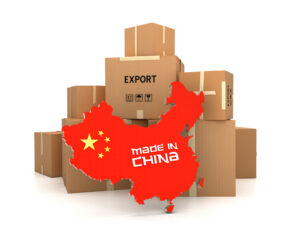
Imports of transformers, inductors, and chokes to Ukraine in January-April 2025 increased 2.5 times compared to the same period in 2024, reaching $338 million, according to statistics from the State Customs Service.
According to published data, during this period, products were imported mainly from China, worth $279 million (82.5% of all imports of these goods), while a year earlier, transformers and chokes worth $66.1 million (48.4%) were imported from this country, i.e., imports increased 4.2 times.
In addition, transformers were imported from Germany ($17.4 million) and Turkey ($13.9 million), while in January-April 2024, imports from Turkey amounted to $37.1 million, and from Italy – almost $5 million. In particular, in April, imports of this equipment increased by 50% compared to the same month last year, but decreased by 22.3% compared to March this year, to $55.2 million. China’s share was 48.7%.
At the same time, Ukraine exported transformers, inductors, and chokes worth $8.37 million in the first four months of this year, compared to $5.64 million last year, mainly to Germany, Hungary, and Poland.
According to the State Customs Service, imports of transformers, inductance coils, and chokes in 2024 more than doubled compared to 2023, reaching $596.11 million, with imports from China increasing 2.5 times to $400.48 million.

In the Suzak district of the Jalal-Abad region of Kyrgyzstan, construction has officially begun on major railway facilities for the China-Kyrgyzstan-Uzbekistan railway.
As part of the construction of this railway, three tunnels with a total length of over 10 km are planned to be built, including: Tunnel No. 1 Naryn (Jaman-Dawan) – 12.5 km; Koshtoba (Kazarman) tunnel – 13.2 km; Fergana mountain tunnel – 12.2 km. The total length of this railway project is 532.53 km.
CHINA, CONSTRUCTION, KYRGYZSTAN, RAILWAY, tunnels, UZBEKISTAN

The management of the Central Bank of Uzbekistan discussed with representatives of Tencent Cloud International, a part of the Chinese holding Tencent Holdings Ltd, the issues of bilateral cooperation in the development of digital technologies and cloud infrastructure in the country, the press service of the regulator reports.
During the talks, the prospects of integrating Tencent’s WeChat Pay digital payment system with local payment systems of Uzbekistan, the possibility of making payments using QR codes, as well as expanding cooperation in this area were discussed, the statement said.
Following the meeting, the parties supported initiatives in the field of payment systems and agreed on future joint actions.
Miraziz Mirkhayotov, deputy director of the Central Bank’s payment systems department, told reporters that Chinese mobile payment services WeChat and Alipay (from Ant Group, a subsidiary of Alibaba Group) can be integrated with Uzbekistan’s national payment systems.
According to him, at the first stage, the parties are working to ensure that foreign tourists can make payments in Uzbekistan. At the second stage, similar work is planned to make payments by Uzbek residents in China through the republic’s payment systems Uzcard and Humo.

Germany topped the list of leading beer exporters to China in the first quarter of this year (by $23.258 million), according to the State Customs Administration (SCA) of the PRC.
It was followed by the Netherlands (by $11.799 million), Belgium (by $11.239 million), and Spain (by $10.028 million). Among Asian countries, Japan supplied the most beer to China – by $5.276 million.
In total, in January-March 2025, China imported beer from 52 countries and exported it to 89.

Canadian Prime Minister Mark Carney said China is one of the biggest threats to the country in terms of foreign interference and geopolitics, and criticized Beijing for partnering with Russia in the war against Ukraine, according to a Reuters report.
During Thursday night’s election debate, Carney called China the biggest threat to Canada’s security. At a news conference in Niagara Falls on Friday, he emphasized the need to counter outside interference from China.
Carney also said China’s collaboration with Russia in the war against Ukraine poses a threat to all of Asia, especially Taiwan.
“We are taking measures to address it,” he said.
The Chinese Embassy in Ottawa did not comment on the statement. Carney’s Liberal Party is leading in the polls ahead of the April 28 parliamentary election.
In addition, Canada remains embroiled in a trade standoff with the U.S., responding with duties on U.S. restrictions on Canadian cars, steel and aluminum.
Carney stressed that Canada has no plans to respond dollar-for-dollar, but recognized the restructuring of the global trading system.

In March 2025, China’s exports grew by 12.4% year-on-year, reaching $313.9 billion. This growth was significantly higher than the forecasted 4.4% and was the highest in the last five months. The main reason for this jump was the desire of Chinese manufacturers to speed up deliveries abroad before the new high US duties on Chinese goods come into effect.
On April 10, the administration of President Donald Trump increased tariffs on Chinese imports to 145%, citing trade imbalances and problems with fentanyl. In response, China imposed retaliatory duties of 125% on American goods and restricted exports of rare earth elements.
Experts warn that the March export growth is temporary. Exports are expected to decline in the coming months due to new tariffs and weakening global demand.
Analysts at Goldman Sachs and Citi have already lowered their forecasts for China’s GDP growth in 2025 to 4% and 4.2%, respectively. At the same time, China’s imports fell by 4.3% in March, indicating weak domestic demand. Purchases of soybeans fell particularly sharply – by 36.8%, which may be due to trade restrictions and delays in shipments from Brazil.
In response to the deterioration of trade relations with the United States, China is stepping up efforts to diversify its export destinations, increasing supplies to Southeast Asia, Africa, and India.
During his visit to Southeast Asia, President Xi Jinping emphasized the need to strengthen regional trade ties and counter unilateral protectionist measures.
Thus, despite the short-term growth in exports, the Chinese economy faces serious challenges amid the escalation of the trade war with the United States and weakening domestic demand.